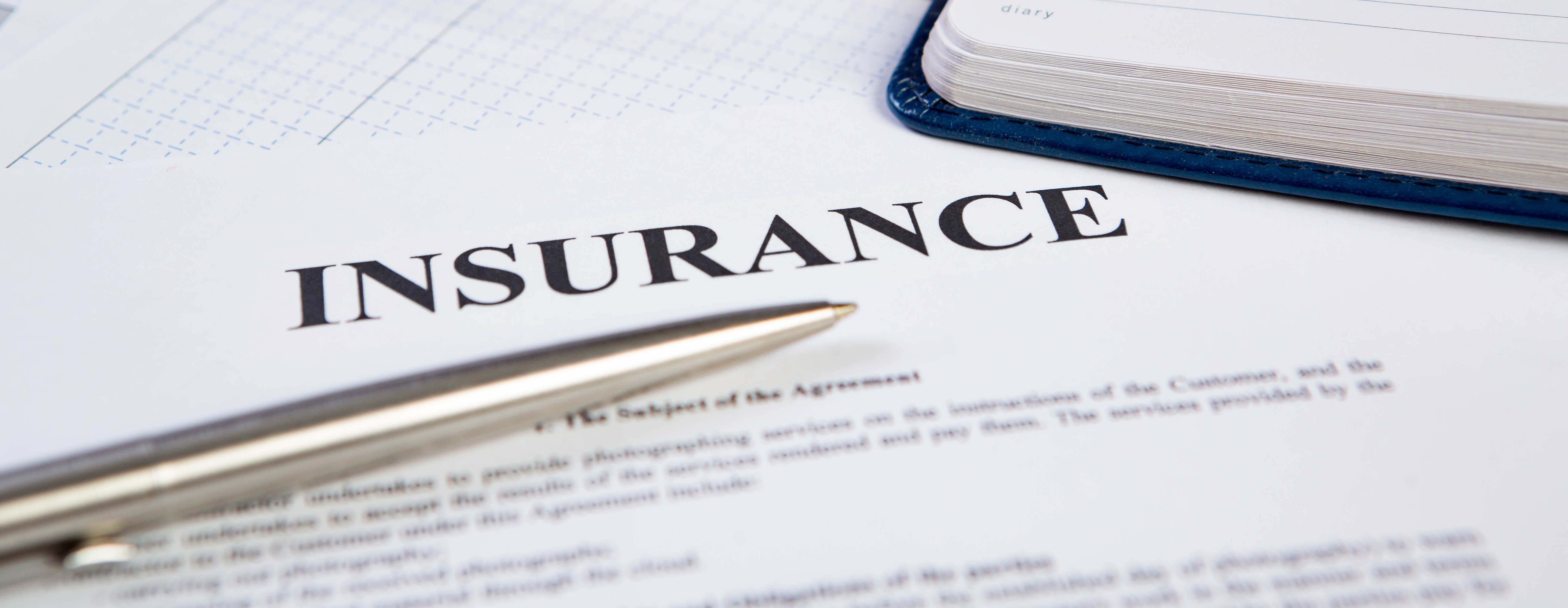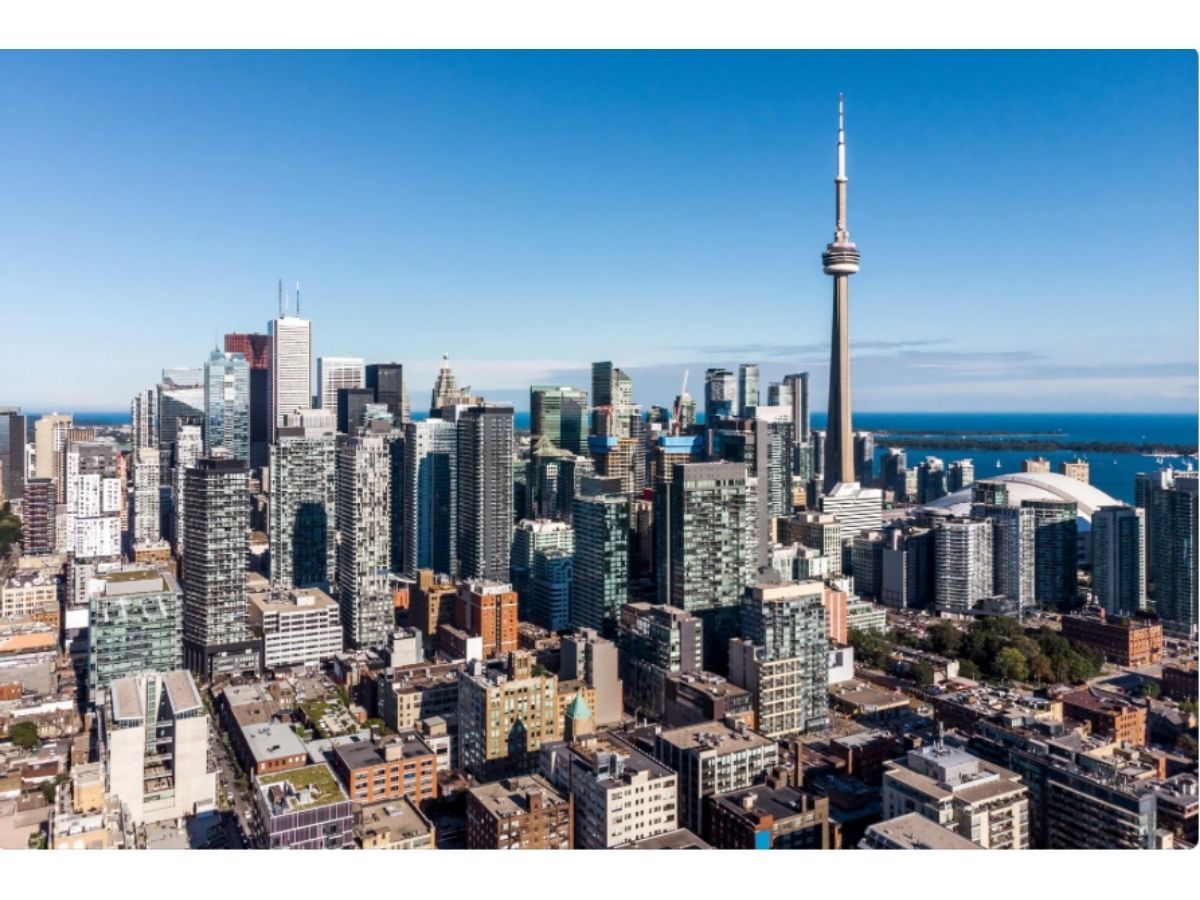 🦷 Why Dentists Should Hire a Lease Consultant
🦷 Why Dentists Should Hire a Lease Consultant 💸 The False Economy of Skipping a Lease Consultant For many dentists, leasing space for a practice represents one of the most significant financial commitments of their careers. Yet, when it comes to negotiating the lease, some try to “save money” by handling it themselves or by relying on someone with little to no experience in commercial leasing rather than engaging a qualified lease consultant specialising in tenant representation for commercial property. This false economy often proves costly, as early missteps in negotiation can lead to long-term financial and operational consequences that far outweigh any initial savings.
 Seven Lease Investment Tips - 2025 Market Update
Seven Lease Investment Tips - 2025 Market UpdateIn today’s Ontario market, many healthcare professionals and retail business owners find commercial leases overwhelming. Real estate contracts are filled with technical clauses, market conditions keep shifting, and landlords often hold greater experience at the negotiation table. Yet, a lease is not merely a monthly obligation; it can be one of your most valuable long-term investments.
 Who is the Tenant on Your Lease?
Who is the Tenant on Your Lease?When you sign a lease, the “tenant” is more than just a name on the first page. It defines who is legally responsible for years of obligations. Shakespeare said, “A rose by any other name would smell as sweet.” In leasing, the name matters less than what the tenant actually is, and the consequences can follow you for decades.
 ⚠️ Don’t Miss Your Lease Renewal Deadline
⚠️ Don’t Miss Your Lease Renewal DeadlineFor dental professionals and retail business owners, your lease renewal option is one of the most valuable protections in your lease. But it only works if you exercise it before the expiry date.
 Selling or Buying a Dental Practice? Don’t Overlook Your Lease Assignment
Selling or Buying a Dental Practice? Don’t Overlook Your Lease AssignmentWhether you are selling or acquiring a practice, your office lease is just as critical as your patient records and equipment. A well-managed lease assignment ensures the incoming dentist can assume the practice seamlessly and preserves its full value.
 Is Your Dental Premises Adequately Insured? Avoid costly oversights, protect your clinic and career.
Is Your Dental Premises Adequately Insured? Avoid costly oversights, protect your clinic and career.As a dental professional, you have spent years developing your practice, acquiring specialised equipment, and earning your patients' trust. BUT what if everything you have worked for was at risk, not due to a clinical issue, but because your insurance coverage failed to meet the requirements of your lease? This is not a hypothetical scenario. Many dentists unknowingly hold insurance that does not meet the requirements specified in their lease agreements.
 My Dream Article - Beer & Dentistry & Leases (Be patient, I get there in the end!)
My Dream Article - Beer & Dentistry & Leases (Be patient, I get there in the end!)I have always enjoyed beer, although my preferences are somewhat particular. I tend to favour hop-forward IPAs, rich stouts, and experimental brews, whilst my wife prefers sours, Belgian styles, and malt-driven amber ales. When travelling, we often dedicate time to exploring local breweries and are continually impressed that quality beer can be found in nearly every corner of the world. We have also been fortunate to visit some of the most iconic breweries: Heineken in Amsterdam, Paulaner and Löwenbräu at Oktoberfest in Munich, and even the Budweiser experience at Busch Gardens in Florida.
 Tenant Advocacy in Office Premises - Navigating the Current Downtown Toronto Office Market for the Success of Your Practice
Tenant Advocacy in Office Premises - Navigating the Current Downtown Toronto Office Market for the Success of Your PracticeYour practice location is not just a space; it is a business asset that influences your brand, your staff, and your patients. Whether you are staying put or preparing to move, the lease negotiation process has never been more complex. In today’s downtown Toronto market, understanding the landscape is key. Vacancy rates are currently around 14% to 17%, significantly higher than the pre-pandemic low of 2% to 3%. While this creates opportunities for tenants, demand for premium Class A/AAA buildings remains steady, meaning competition is still fierce for top-tier spaces.
 Planting The Seeds For Long Term Success
Planting The Seeds For Long Term SuccessEvery lease represents both a legal obligation and a financial opportunity. How that lease is negotiated in the beginning, or at renewal, has lasting consequences. When it comes to lease negotiations, tenants face a fundamental question: “Who should represent my interests?”
 Navigating Current Market Realty Leasing Opportunities: How Tenants Can Thrive Despite A Competitive Market
Navigating Current Market Realty Leasing Opportunities: How Tenants Can Thrive Despite A Competitive MarketIn the current commercial real estate landscape, success is achieved by those who recognise opportunities, even amidst challenges. While many prospective tenants encounter difficulty in identifying locations free from intense competition or spaces offering favourable lease terms, a strategic and pragmatic approach can transform these challenges into long-term advantages.
 Understanding Lease Assigment: Protecting Your Right to Transition
Understanding Lease Assigment: Protecting Your Right to TransitionAt some point during your tenancy, you will need to assign your lease, whether to sell your business, restructure for tax purposes, or bring in a partner. However, the ability to assign is not automatic. It is governed by detailed, often restrictive, clauses in your lease agreement.
 When The Music Stops: Will You Still Have Your Practice Space? Planning Ahead To Avoid Costly Lease Surprises
When The Music Stops: Will You Still Have Your Practice Space? Planning Ahead To Avoid Costly Lease SurprisesHave you ever played musical chairs? As the music plays, everyone circles, then it stops, and there is a scramble for a seat. The slowest person is left standing and out of the game. In commercial leasing, your practice location is your chair. And one day, the music will stop. The only question is: Will you be ready?
 Landlord Tenant Relations: Can They Affect The Sale of Your Practice?
Landlord Tenant Relations: Can They Affect The Sale of Your Practice?The vast majority of Canadian doctors lease their office space. Historically, the landlord-tenant relationship has often been described as “feudal,” a reflection of the conflicting goals between the two parties: tenants aim to minimize rent, while landlords seek to maximize it. Yet, it’s important to recognize that a property owner can significantly influence both the day-to-day image of your practice and the eventual sale of it. A landlord’s cooperation or lack thereof can shape how a prospective buyer perceives the security of their investment.
 Yes, You Can Negotiate Your Own Lease - And So Can Your Dry Cleaner!
Yes, You Can Negotiate Your Own Lease - And So Can Your Dry Cleaner!DIY is popular and cost efficient.AI is making it easier. Some advisory services are about to be eliminated (think about travel agents) and the power is being given to the people – and fast! Who will be next? Realtors? Graphic designers? Ghost writers (the humankind)… so many moving parts are unfolding at once.
 And Suddenly, You Owe Your Landlord “$250,000”
And Suddenly, You Owe Your Landlord “$250,000” "Shocking $250K Lease Mistake: Could This Happen to You?" A hidden clause, a mismeasured suite, and a decade-long oversight—discover how one doctor’s lease turned into a $250,000 surprise and why it could happen to any healthcare professional. Don’t let square footage sink your practice.
 "Break-Up Value" Can A Practice Be Worth More In Part Than In Whole
"Break-Up Value" Can A Practice Be Worth More In Part Than In WholeOn occasion, a purchased dental practice must be relocated as a condition of the sale. This can occur when the lease is expiring and the building is being torn down or when the real estate owned by the retiring dentist is more valuable when vacant then when occupied by a dental office - something that is common with many older, converted residential homes / dental offices in highly desirable neighbourhoods.
 The Lease That Threatened A Lifetime Of Work – Landemic™
The Lease That Threatened A Lifetime Of Work – Landemic™She stood at the window of her dental practice, her weathered hands resting on the sill. A view she had seen ten thousand times while contemplating her next patient. She looked over at the stack of patient records—each one a testament to a career built on trust, care, and unwavering dedication. At 63, she had constructed more than a business.
 🚨 URGENT Update: New Lease Clause Could Threaten Practice Value and Stability 🚨
🚨 URGENT Update: New Lease Clause Could Threaten Practice Value and Stability 🚨A major real estate investment trust has introduced a lease clause that could drastically undermine the value and stability of professional practices. If signed, this provision poses a critical threat to any tenant’s continuity, financial health, and future business valuations. Here is what’s at stake and why it is essential to stay informed.
 Owning Your Business Premises
Owning Your Business PremisesFor more than 15 years, I had the honor of owning the building where my company thrived. I can still recall the moment when the deal closed, and the keys were placed in my hands. It was as though I was stepping into a new chapter, unlocking the door to what had once been a Buddhist temple.
 The Landemic™ Strikes Again - With Severe Financial Pain
The Landemic™ Strikes Again - With Severe Financial PainI recently completed an appraisal for a thriving, 50-year-established dental practice in the heart of a major Canadian city. This isn't just any practice-it's an elite, high-functioning operation with metrics most dentists can only dream of.
 “KISS OF DEATH” Lease Clauses Negotiate Before It's Too Late!
“KISS OF DEATH” Lease Clauses Negotiate Before It's Too Late! When it comes to lease clauses, there are several:
 Practice Location Ownership Versus Leasing
Practice Location Ownership Versus LeasingTenants often wish they owned their own premises, especially when faced with challenging landlord issues. Make no mistake, the differences between leasing and owning your premises are very significant. Consider the following. What are the short-term implications of ownership versus leasing?
 Lease Administration
Lease AdministrationWhat you don’t know about your lease will hurt you. Your patients ought to have a periodic oral health check up. Why don’t you have a periodic lease health checkup?
 Effective Lease Term Renewal Negotiation
Effective Lease Term Renewal Negotiation No lease, no premises, no practice. Remember that your lease controls how long you can practice in the premises, your rent cost, the value of your practice and your retirement fund. Therefore, your lease and its terms are critically important.
 Why Lease Reviews Are Very Important
Why Lease Reviews Are Very ImportantYour commercial lease is one of your biggest financial and contractual obligations and it should not be overlooked or forgotten. Depending on your current and future plans there are certain lease clauses that may have been pre-negotiated and if overlooked or any important dates are missed you could put your business in jeopardy.
 Post-COVID-19 Premises Leasing Landscape
Post-COVID-19 Premises Leasing LandscapeThe premises leasing landscape is very different from two and a half years ago. Tenants have endured repeated lockdowns, global paranoia, anxiety and depression, economic euphoria over soaring property and stock market values. They’ve also experienced e-spending with confidence fueled by ultra-low interest rates and governments pouring stimulus funds into pockets, dramatic work-at-home demographic shifts, and bewildering e-communication advances.
You spend countless hours planning bank financing, personal investments, tax strategies, taking continuing education credits, learning treatment modalities, developing marketing initiatives, effecting staff recruiting, retention and training strategies, but most tenants rarely look at their premises arrangements because it’s not an immediate concern.
 Covid Crunch - The Landlord and Tenant Dance
Covid Crunch - The Landlord and Tenant DanceAs the country re-opens and emerges from the covid-social distancing funk, what are tenants doing? Many tenants are badly damaged by the impaired social distancing economy.
 “Rent Relief Update -- LEEFF”
“Rent Relief Update -- LEEFF”Will large landlords including REITS, help their tenants with rent relief? The federal government has unveiled a new financial relief program that is designed for large landlords including Real Estate Income Trust(REITS). It is an interest-bearing loan to large businesses who have been affected by COVID 19.
 Reducing Rent or Overpaying – The Choice is Yours!
Reducing Rent or Overpaying – The Choice is Yours!In today’s day and age, your landlord will not call you and offer to reduce your rent. Here are five key rent-saving opportunities every tenant should know.
 Is it Time to Expand or Move Your Business?
Is it Time to Expand or Move Your Business?A great location can be the cornerstone to your business, but do you know why it is so great? There is a lot of criteria that goes into what constitutes great space and every business will think about it differently. As things have changed quite drastically in recent months, its possible things have changed for your business as well and you are starting to think about how you might embrace it.
 Your Landlord Won’t Offer to Reduce Your Rent
Your Landlord Won’t Offer to Reduce Your RentYour landlord will not call you and offer to reduce your rent. Here are five key “when and how” rent saving opportunities every tenant should be aware of. Covid – 19
 Life Cycle of a Tenancy - Part 3: Lease
Life Cycle of a Tenancy - Part 3: LeaseThe life cycle of a tenancy consists of a number of steps, each no less critical than any other. The cycle begins with site selection, and progresses through an offer to lease, to a lease, through periodic lease renewals, often to assignment, and eventually to end. This article about the Lease is the third in a series that will explore the various stages of a tenancy.
 Three Tenancy Cost Increases to Watch For
Three Tenancy Cost Increases to Watch ForVague language in your lease agreement increases your risk of unexpected cost increases. Here are three of the more significant ways your tenancy costs may increase without any changes to your lease document or your base rent.
 Five Alternatives to a Standard Tenancy Agreement
Five Alternatives to a Standard Tenancy AgreementTaking an alternate approach to tenancy could create access to a market where no suitable space appears to exist
 Life Cycle of a Tenancy - Part 2: Offer to Lease
Life Cycle of a Tenancy - Part 2: Offer to LeaseThe life cycle of a tenancy consists of a number of steps, each no less critical than any other. The cycle begins with site selection, and progresses through an offer to lease, to a lease, through periodic lease renewals, often to assignment, and eventually to end. This article about the Offer to Lease is the second in a series that will explore the various stages of a tenancy.
 Negotiate Your Renewal Like A Pro
Negotiate Your Renewal Like A ProDon’t send a dental pro where a lease pro is needed. If you are not confident negotiating key leasing issues you need an advocate!
 The Life Cycle of a Tenancy – Part 1: Site Selection
The Life Cycle of a Tenancy – Part 1: Site SelectionThe life cycle of a tenancy consists of a number of steps, each no less critical than any other. The cycle begins with site selection, and progresses through an offer to lease, to a lease, through periodic lease renewals, often to assignment, and eventually to end. This article about Site Selection is the first in a series that will explore the various stages of a tenancy.
 Tenant Representation
Tenant RepresentationSeveral remarkable changes have permanently impacted the tenant’s ability to manage its location. The commercial real estate industry has changed, the tenant community has changed, and tenant representation has changed. A well-informed tenant must recognize and respond to these changes.
 Tenancy Management Opportunities
Tenancy Management OpportunitiesA lease is a static agreement written to describe a dynamic process, inevitably something that seemed like “a good idea at the time” becomes a problem when the point of view shifts. This creates an opportunity. Understanding the realistic power of a leverage position can help you use these opportunities to affect positive change.
 The Rent to Production Ratio
The Rent to Production RatioThere are several rent reduction and production improvement strategies that could be implemented to improve your rent to production ratio, all of which will require actively managing your lease.Thoroughly understood and properly administered, your lease should be treated as a business tool that will add value and help you reach your short and long term goals.
 Tenant Advocacy in Office Premises
Tenant Advocacy in Office PremisesMost tenants run a specialized operation that has nothing to do with commercial real estate. Having an innovative and objective advocate become a temporary member of your team to strategically negotiate on your behalf is essential. Your advocate should protect your position by minimizing your risk, reducing your operating and occupancy expenses, mitigating your exit restoration exposures, and providing future flexibilities.
 Know Your Place
Know Your PlaceKey profile and access points to consider during Site Selection. These key factors, directly connected to your building and your geographical area, can account for up to 40% of your volume. Your Lease needs to have the correct provisions to ensure you can exercise some control over the Profile and Access of your location.
 Out of Options
Out of OptionsMany Tenants confess that they have known for a period of years that their Lease Term would not be renewed, but deferred action until the eleventh hour. Many simply don't have the time or the expertise to manage Lease affairs. Make sure you clearly understand how your options to renew work, and how you should administer them.
 Do Your Premises Measure Up?
Do Your Premises Measure Up?Check your lease for rent overpayment. It's very unlikely your landlord will tell you that you are overpaying rent, but If your premises area is misrepresented in your lease this may very well be the case.
 Did I agree to Pay for That? A Primer on Additional Rent.
Did I agree to Pay for That? A Primer on Additional Rent.The market trend in Commercial Leasing is toward “net” leases, which means the tenant agrees to pay the landlord a “base” or “minimal” rent plus additional rent to make up the gross rent. How do you know what you should be paying? How do you verify the amounts? And how do you confirm which costs are relevant? Not all tenants get good value for their Additional Rent dollar, don't let your Reconciliation Statement take you by surprise.